Last Updated on August 5, 2021

One of the hottest titles to play at TIFF this year was SEVEN PSYCHOPATHS, Martin McDonagh’s brilliant takedown of the hip-gangster genre. Boasting a cast including Colin Farrell, Christopher Walken, Woody Harrelson, and Tom Waits, SEVEN PSYCHOPATHS was an intriguing addition to TIFF’s usually genre-heavy Midnight Madness lineup. Certainly, McDonagh’s follow-up to IN BRUGES was a little highbrow for Midnight Madness? Within five minutes it was obvious that yes, SEVEN PSYCHOPATHS- with heavy doses of comedy and the occasional blast of ultra-violence was right where it belonged, and to say it absolutely rocked the Ryerson Theater that night is an understatement (READ MY REVIEW).
While the entire cast contributes standout work, the real breakout star of SEVEN PSYCHOPATHS has to be Sam Rockwell. Over the last decade, Rockwell’s done it all- from sci-fi comedy (HITCHHIKER’S GUIDE TO THE GALAXY) to sci-fi seriousness (MOON), to zany laugh-riots (THE SITTER), to blockbusters (IRON MAN 2) to dark, sobering drama (SNOW ANGELS). SEVEN PSYCHOPATHS features Rockwell as the ne’er do well dognapper, Billy- who makes the mistake of stealing psycho gangster Charlie’s (Woody Harrelson) beloved shih-tzu, much to the dismay of his best friend, struggling screenwriter Marty (Colin Farrell).
Rockwell generously made time to give us a 1:1 interview shortly after the SEVEN PSYCHOPATHS premiere, and we chatted for nearly a half-hour about the challenges of inhabiting the duplicitous Billy, while staying true to McDonagh’s tightly written screenplay (while avoiding SPOILERS).
SAM ROCKWELL

Sam Rockwell: Great, we’re alooone. All right, man.
JoBlo.com: So I saw the movie on Friday night at the Midnight Madness screening and I loved it.
Great.
Crazy, it was right up my alley.
Great! That was a good reception, man.
Oh yeah, it was awesome.
It was pretty cool, man.
But I wanted to ask you, you mentioned in the Q & A or Martin mentioned in the Q & A, that you guys knew each other a little bit. Had you worked together before?
Yeah, we did a Broadway play. Me and Chris Walken did Martin’s play beginning in Spokane with Zoe Kazan and Anthony Mackie.
Oh, okay. How did you end up getting the script for this or how did this end up coming together?
I got it while I was finishing the play. Martin sent it over.
Was this a while ago though?
So this was a couple of years ago. Iron Man 2 had just come out. He sent it over and I read it, and I thought it was genius. I think I went and did Cowboys and Aliens and The Sitter. Then I took some time off and then they got the green light for the film with Colin. We did a reading with Colin. Colin was attached pretty much from the get-go, I think, but somehow we got the green light. Once we had all that together, we started getting into it, and then I started preparing for it.
How close is the film to the script that you received a couple of years ago? Were there a lot of changes or was it close?
Not a lot, there’s a few changes. Originally some dogs were killed, actually.
Oh really?
Yeah, yeah. That was changed. ‘Cause that just felt a little too dark.
Yeah.
And the tone is primarily comedic.
Oh for sure.
There were a few things. There was one line about that my character thought he was Travis Bickle’s son, not Robert DeNiro’s son, Travis Bickle’s son. But we kept his last name being Bickle. I think Martin said to me once he was going to change it, he said “Do you think we should change Bickle?”, and I said “No, I think we should keep it.” Bickle, there’s something there. You can see the comparisons, a little bit, could be made.
I wanted to ask, ‘cause Martin McDonagh is known for his prose basically right, and it kind of reminds me of David Mamet or something. I was wondering to you was that a similar thing?
Absolutely, yeah.
Not a lot of room for improvisation, I guess?
Yeah, Mamet, Tarantino, David Rave you know. Very similar kind of cadence to it. Yeah, absolutely.
What’s the challenge though in keeping that sounding naturalistic though? Because even though it was beautifully written, sometimes when something’s written that way it seems almost stylized. But it seems natural though, when I saw it. Totally.

Yeah, the dialogue is actually very easy to say, and it is stylized but it’s very realistically written, and it’s very specific. Things like “Ye”, or “Youse”, it’s kind of Irish-New Yorky. It’s kind of pretty dead-end kid. You almost envision in another version of this they would talk like dead-end kids, like “Hey, it’s getting waste”. I gave him a little bit of a New York regionalism, which worked for me. I think you need a working class kind of undertone and Colin has that with his Irish accent and I put a little bit of that in. I think Woody’s got more of a rural Texas thing that works for him and then Chris, of course being from Queens, and being a baker’s son, he can access that side of him as well. And also be incredibly eloquent because of all that Shakespeare and Chekhov he’s done.
Speaking of the title-Do you think that your guy sees himself as a psychopath?
No, no way. He’s a … there’s a similar relationship like in Bullets over Broadway with Chazz Palminteri and John Cusack with me and Colin, you know, where Chazz is kinda going “Hey this is how you gotta do the movie, man”. This is similar, he’s a gangster/muse, you know?
Yeah absolutely.
There’s that quality, I think. Speaking of Chazz Palminteri, the Sean Penn and Chazz Palminteri relationship in Hurlyburly which I think was originally William Hurt and Harvey Keitel, but that is a similar… they might have cut this…is it clear that I am an out of work actor?
Yeah, yeah, you talk about auditions and stuff, and getting kicked out because you beat a guy up.
Yeah. ‘Cause they cut a line at the party. I think that was interesting where I say I’m an actor. Yeah, and Chazz is sort of an out of work actor and he looks up to Sean Penn and same thing with me and Colin, you know, I look up to Colin’s character.
And one thing that I thought was great about the film too is that you and Colin Farrell had a really great camaraderie, it’s on screen. Even though they’re two polar opposites, they could’ve been friends, right?
Absolutely…
… and it doesn’t really stretch believability. Sometimes when you see movies like that, you’re like well “How would he have ever ended up hanging out with this guy?”
Yeah, that’s right.
How did you guys kind of work on that chemistry a bit and with Walken too, I thought…

Yeah, well Walken and I had already had that from the play ‘cause we spent so much time together during the play so we have this relationship, me and Chris. Colin and I had to develop that pretty quickly and that’s just luck really ‘cause we have good chemistry. That’s it, that’s the thing that’s sort of unexplainable; you have good chemistry with these people.
There’s like a road trip too or something, you guys went on before?
We took a road trip, me and Martin and Colin and that’s where Colin found a bear hat in a rest stop and he put it on my head and he got the Cheetos and chocolate milk thing. We had a little bit of that in the movie. He recommended Cheetos and chocolate milk. And we used that hat in the movie, you know, so… but Colin is… you know, these are very likeable people, they’re great actors…
Sure, sure.
Abby Cornish, and Woody, you know it’s like, it’s not hard to….unless somebody turns out to be an asshole, but these are not those people. These are great people. So there’s a reason Colin is a movie star, he’s a very charismatic guy. He’s infectious, you know? You can’t help but just love the guy so we just hit it off pretty much right away. I remember I met Colin years before that, and he was really great. Really cool. But that’s a different Colin, you know, he was a kid, I was a kid.
How does your approach to a movie like this though… ‘cause what I find really interesting about your career is that you’ve done pretty much every genre, right? But with Seven Psychopaths, it feels like it’s all genres, right?
Yeah.
It’s a comedy, but it’s also, you know, a crime thriller. There’s some drama in there, there are a couple of great contained dramatic scenes, where- you know, where it’s serious. How’s your approach to that? Do you approach it like a comedy? Is there a distinctly different approach depending on the tone of the role?
Yeah, ultimately I think you got to play everything very real, you have to be truthful, no matter what.
Naturalistic, yeah.
I think everything has to be truthful, but that being said, I think that you do lend yourself towards the style of the filmmaker and whatever that is, you know. But I think all good actors are truthful, that’s their job. Truthful under imaginary circumstances, you know. You gotta do that at the end of the day. When in doubt, be real, you know. If you don’t know what to do, just be real. That being said, there is a style, when you know that it’s a comedy, for the most part, with these poignant moments. It’s a lot of work involved preparing for something like this, but then you got to kind of throw it away and let happy accidents happen.
And it’s also kind of a deconstruction of the genre, as well though.
Yeah, it’s a debate on violence in film.
And very timely too, yeah.
Yeah, yes very much, yeah.
How did you… when you saw the film cut together on Friday, was it your first time actually seeing it?
Yes.
Did you stay for the screening? Did you watch it?
Oh yeah, that’s my first time. It was amazing.
Sometimes when you read a script for a movie, it has no resemblance to the final product ‘cause it kind of comes together in the editing room… I guess, I’m going to assume… but somebody like Martin McDonagh who writes in a very kind of, where the script almost works as a piece of literature on its own, right?
Yeah, yeah.
Did you find that it was all there on the page and it’s all there in the film or is it kind of… were you surprised when you saw it? The way it was going and the direction that it was heading in.
Was I surprised it was going in the way that it was when I saw the movie?
Sure, yeah.
I was. You know what I was surprised about… one thing I was unsure about were a lot of the scenes in the desert where the guys are talking about feelings. I didn’t know if we’d lose the audience there and if the jokes would still work. And surprisingly all the jokes worked. And as soon as you were like, “Oh, are we talking about too many feelings here?” you know, a car would explode or somebody would get shot, so let’s kind of shake it up and I think that was Martin’s whole thing, that’s what the movie’s about. It’s like, OK, it’s fine to talk about feelings but then we gotta blow up a car now.
Well, it’s a pretty hard-core audience too, right?
Yeah.
They seemed like they got into it.
They got into it. They got the tone.
But it’s interesting that you say that though, the last forty minutes of it kind of take place in the desert and just like Colin’s character says, “Hey we should go out to the desert and just talk about our feelings.”
Just talk about feelings, yeah.
And that’s what happens, right?
Yeah.
And it’s almost like a play, but it doesn’t feel that way. I couldn’t imagine this as a play, but it has that kind of feel to it.
Yeah.
When you’re doing that kind of performance, is there a lot of… was there a long rehearsal period or something like that? Like getting the timing down?
We did a little rehearsal, but not extensive. We definitely rehearsed in the desert. We did a little bit, but not a lot. Martin’s very precise about what he wants and stuff, you know.
Great. Well, thanks a lot man.
Thanks man.






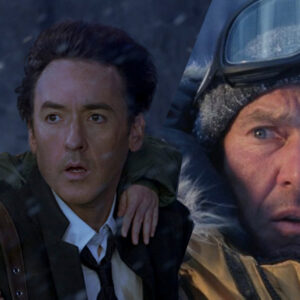

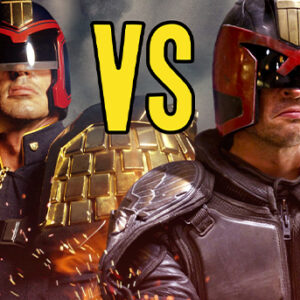
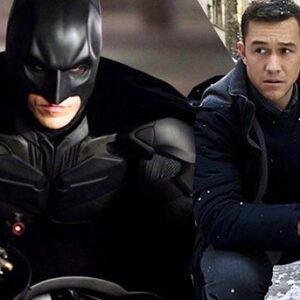

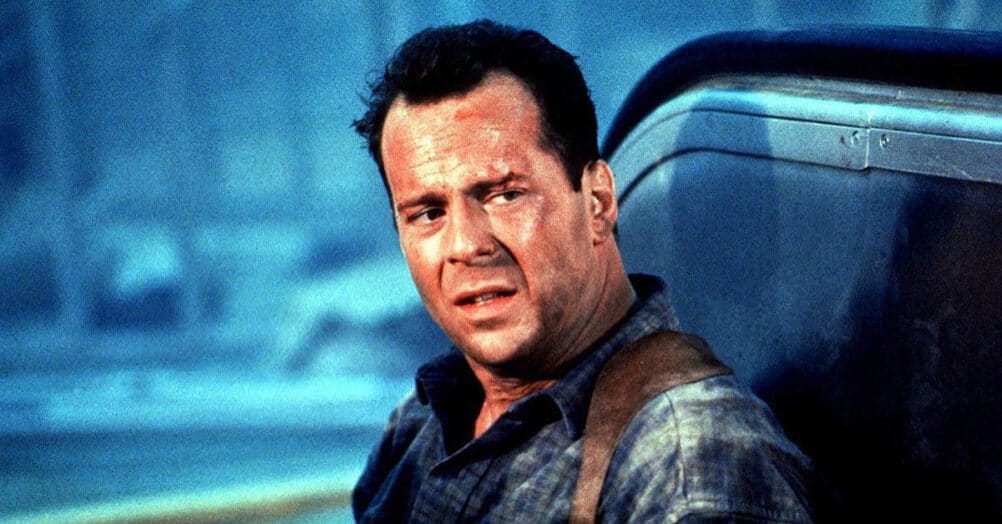




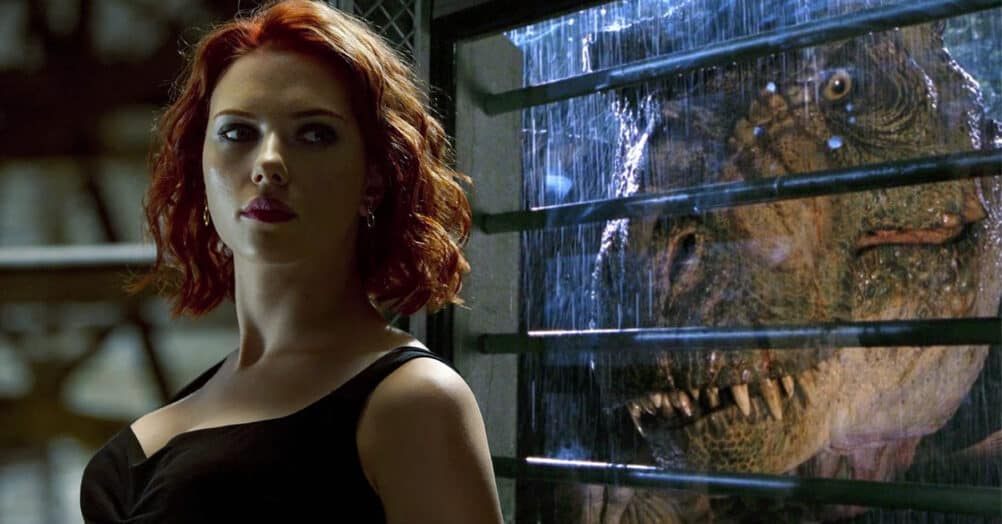



Follow the JOBLO MOVIE NETWORK
Follow us on YOUTUBE
Follow ARROW IN THE HEAD
Follow AITH on YOUTUBE